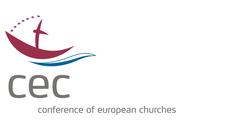The annual assembly of the 40 members of the central committee (CC) of the Conference of European Churches took place in Soesterberg (NL) from 21st to 24th September 2010. Despite all prophecy of doom, the assembly turned out to be fairly constructive, and even though there were some quite complex issues on the agenda, the assembly was held in a positive atmosphere.
Since its last general assembly in Lyon in 2009, the CEC has been in a rather tricky situation and during the last few years it has been repeatedly confronted with big difficulties. As its financial situation is rather serious, the post of the communications’ secretary who resigned by the end of 2009 has not been filled until now. The general secretary handed in his notice due to health problems in summer 2010, the treasurer left CEC unexpectedly by the end of September and the director of the Church and Society Commission is retiring in due time. Furthermore, it was decided at the general assembly in Lyon that the CEC should undergo a thorough restructuring. Since the beginning of 2010 a specially established working group on the revision of CEC is seeing into the structures and work procedures of CEC, analysing them and elaborating possible solutions. This implies that at the moment the CEC finds itself in a general interim phase. Until the next general assembly in 2013 this process should be advanced to such an extent, however, that a new start in a hopefully more positive future can be made.
The Assembly of the Central Committee 2010
Thus, in Soesterberg (NL), the CC discussed primarily questions such as: how can the finances be brought back into balance and how are the vacancies to be filled during this stirring yet fairly uncertain time? After thorough and constructive debates the CC agreed that the director of the Church and Society Commission, Viorel Ionita (who has competently acted as general secretary since the beginning of the sick leave of the general secretary Colin Williams), continue this position until a new interim general secretary is elected in autumn 2011. – As many things, which cannot be clearly defined yet since they are in the midst of being developed, are going to change in the CEC after the general assembly in 2013, the CC refrained from filling the current vacancies on a permanent basis.
As far as the finances are concerned, the situation has ameliorated since last year due to subsidies and partially drastic cost-cutting measures. The financial situation of CEC is by no means secured yet. Therefore, the CC decided to engage a specialist in finances who would examine the entire financial situation (incl. the procedures and processing of the transactions), rather than to already trying to fill the post of a treasurer.
The question of the mission of CEC was also a vital issue at the assembly in Soesterberg, specifically: what has CEC on offer for its member churches which other organisations cannot provide? Inevitably, the CEC has to ask itself this question if it wants to remain attractive for its members and if it aims at motivating the churches to pay their membership fee which have not done so yet. In order to achieve this goal, the churches have to be convinced that it is worthwhile to be a member of CEC. As a result of constructive discussions in groups the CC defined the following prerequisites for the CEC of today: CEC ought to secure a platform of exchange and communication for its member churches; it ought to be a voice for small and minority churches; and it should promote dialogue and theology.
Moroevoer, the CC accepted the work programme 2011 of the CEC. The following five strategic objectives are supposed to be at the core of the work of the CEC:
– promoting the unity of the churches in theology, mission and witness (engaging with the member churches)
– promoting the Charta Oecumenica
– representing the common voice of the churches vis-à-vis the European Institutions
– welcoming the stranger
– promoting coherence and strategic objectives within the whole of the CEC
On the last evening of the assembly, there was an interesting panel discussion between representatives of the churches of the Netherlands (incl. Archbishop Joris Vercammen) and the CC. Although it was already fairly late, those present appreciated the opportunity to ask questions very much.
The next CC assembly takes places in September 2011. The venue is to be decided.
Carole Soland Faessli
CEC-delegate of the old-catholic church of Switzerland

